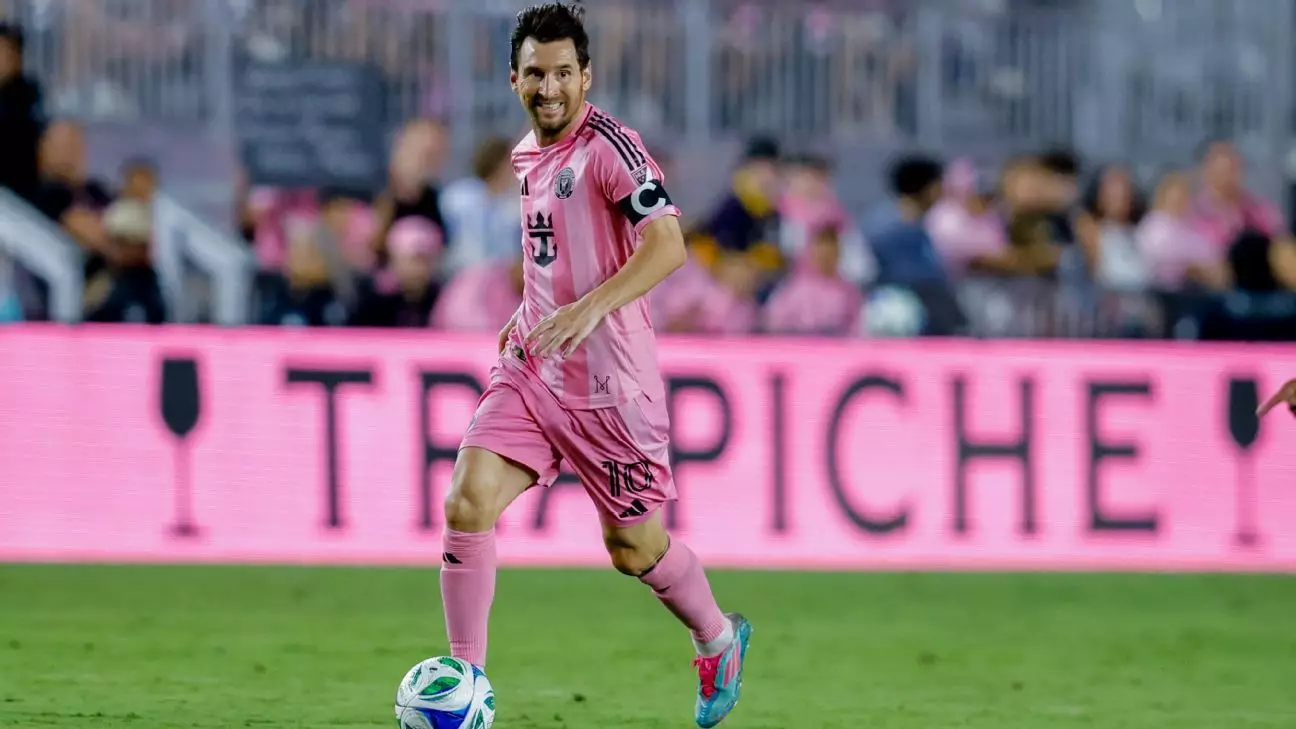Major League Soccer (MLS) stands at a significant crossroads in its evolution within the global sports landscape. Founded in 1993, the league has existed for three decades, boasting a record of only three international titles: D.C. United’s impressive victories in the Concacaf Champions Cup and the Copa Interamericana in 1998, the LA Galaxy’s subsequent triumph in 2000, and, more recently, the Seattle Sounders’ victory in the 2022 edition of the Concacaf Champions League. Despite these landmarks, MLS struggles against ingrained perceptions of inferiority, particularly when juxtaposed against the dominance of Liga MX. With the upcoming FIFA Club World Cup featuring not one, but three MLS clubs—Inter Miami, LAFC, and the Seattle Sounders—the question lurking at the forefront is whether the league is finally on the verge of a breakthrough or will fall short in grueling international competition once again.
Bracing for Battle: The Recent Concacaf Champions Cup Debacle
The MLS’s performance at the recent Concacaf Champions Cup raised alarms. The Vancouver Whitecaps suffered an embarrassing 5-0 defeat to Cruz Azul, a team that finished third in the Mexican league. This debacle serves as a stark reminder of the gulf in quality and depth between top Mexican sides and their American counterparts. Vancouver’s players, including Brian White, openly acknowledged the punitive consequences of their errors on the pitch, illuminating the razor-thin margins that separate success from failure in high-stakes contests.
With players of Cruz Azul’s caliber consistently capitalizing on every mistake, fans and analysts alike are left questioning not just the effectiveness of MLS defenses but the overall preparation and tactical approach in vital matchups. The disparity in roster value cannot be overlooked; Cruz Azul’s starting lineup was estimated to be worth approximately $21.8 million more than Vancouver’s. This glaring discrepancy in talent raises sobering concerns about how MLS representatives will fare on the grand stage of the Club World Cup.
The Weight of Expectations: Can Inter Miami Carry the League?
The stakes couldn’t be higher for Inter Miami as they head into the Club World Cup amid a storm of anticipation and scrutiny. With the arrival of global superstars like Lionel Messi, Luis Suárez, and Sergio Busquets, the pressure for purely stellar performances will loom larger than ever. Head coach Javier Mascherano has attempted to temper expectations, candidly remarking that MLS still does not possess the competitive caliber of its opponents. “The level [of play] will be higher than what we’ve faced in Concacaf,” he stated, underscoring the current reality of the league’s struggle to attain a level of play comparable to its more established international competitors.
The pressure is palpable for Messi and co.; the fate of MLS’s reputation in international football appears to hinge on their performance. A dismal showing would reinforce the notion of MLS as a retirement league, overshadowing the progression it has made in recent years. However, should they find success against their formidable rivals, it could catalyze a shift in perceptions, bolstering an image of the league as a competitive stage for not just aging legends, but as a launchpad for future talent.
MLS’s Competitive Landscape: Reality or Perception?
Despite the challenges ahead, an upward trend in MLS cannot be ignored. The league has recently shed the stigma of merely being a destination for aging superstar players, with an increasing number of outbound transfers signaling a more vibrant talent ecosystem. Players like Miguel Almirón and Tyler Adams demonstrate that MLS has become a breeding ground for future successes rather than an endpoint in a player’s career.
The Club World Cup looms as a significant opportunity for rectifying perceptions that have lingered for far too long. While expectations remain cautious for teams like the Seattle Sounders, who face a daunting group stage against two of the world’s elite clubs—Paris Saint-Germain and Atlético Madrid—the reality is fraught with both risk and reward. Emerging from the group stage might require more than mere luck; it necessitates learning from past experiences, such as the Whitecaps’ harrowing exit in the Concacaf Champions Cup.
Turning Potential into Performance: The Road Ahead
Navigating the complex dynamics of the Club World Cup is a tall order, but it provides MLS with an essential opportunity to transform its narrative. The league’s entrants must evolve, not merely in terms of strategy but also in the mindset that success is not just about competing—it’s about winning. The scale of challenges presented by international adversaries can serve to galvanize MLS teams toward higher performance standards.
For a league that aspires to establish itself on the world stage, the Club World Cup may very well represent a transitional phase, where its teams showcase their growth, resilience, and potential. The clear divide in resources between MLS and its opponents is not an insurmountable hurdle; rather, it is a call to arms for all involved. Whether it manifests in tactical brilliance, fortitude, or sheer heart, the real measure of MLS’s international ambitions will be revealed in its ability to rise to the occasion—and possibly reshape the very fabric of its historical narrative.

